Downloading data from Wiki22/4/2022 Did you know about this cool tool, which allows you to download data from a Wikipedia table as a csv: wikitable2csv.ggor.de/ How to interpolate in a Spreadsheet15/4/2022 Here's a useful trick that you might not have seen before. Suppose we have some data with includes rows with values missing, then we can use the below formula to apply linear interpolate to fill in the missing datapoints, without having to laboriously type in the interpolation formula long hand (which I used to do all the time)
I wrote a python script which uses Selenium to scrape the predictions for Fed rate movements from the CME FedWatch tool.
www.cmegroup.com/trading/interest-rates/countdown-to-fomc.html#resources The tool works by converting the price of a 30 day Fed Fund future into an implied probability of a given range of yields. The CME website embeds the output in a something called an 'iframe', which I had never heard of before, and the iframe then contains a dashboard powered by something called Quikstrike. It took me a while to figure out how to switch focus to the iframe, as you can't simply reference elements inside the iframe without first switching focus. The script below may not look too complicated, but believe me, it took a while to write.
Old Federal Reserve building Philadelphia, Source: https://commons.wikimedia.org/wiki/User:Beyond_My_Ken
Python script - PredictIt API11/3/2022
I wrote a quick Python script to download the latest odds from PredictIt, and then output to an Excel file. I've pasted it below as an extract from a Jupyter notebook:
PredictIt is an online prediction website, mainly focused on Political events: www.predictit.org/ I think it's great that PredictIt allow access like this, before I realised the API exists I was using Selenium to scrape the info through Chrome, which was much slower to run, and also occasionally buggy. This post is about two pieces of writing released this week, and how easy it is for even smart people to be wrong.
The story starts with an open letter written to the UK Government signed by 200+ scientists, condemning the government’s response to the Coronavirus epidemic; that the response was not forceful enough, and that the government was risking lives by their current course of action. The letter was widely reported and even made it to the BBC frontpage, pretty compelling stuff. Link [1] The issue is that as soon as you start scratching beneath the surface, all is not quite what it seems. Of the 200+ scientists, about 1/3 are PhD students, not an issue in and of itself, but picking out some of the subjects we’ve got:
Driverless, Autonomous, Self-driving, robotic, drone cars, whatever you want to call them, I think self-driving cars are going to be awesome.. The potential benefits include:
But how far away are we from this being a reality? It seems like we are constantly being told that self-driving cars are just on the horizon, and that wide spread use of self-driving cars will arrive sooner than we think. It got me thinking though, surely even when manufacturers start churning out driverless cars, isn't it still going to take a considerable amount of time before they begin to replace all the cars currently being driven? Most people will not suddenly go out and replace their current car the moment self-driving cars are available on the market. Replacing all the old cars Almost all cars that are currently being driven today will never be self-driving, it will only be new cars, after a certain point, that will start to be self-driving. So even if all new cars from now on were to be self driving, there would still be a delay as old driven cars were slowly replaced by self driving cars. I thought I'd try to do some modelling to see how quickly would this process might take place. As a starting point, let's assume that we will start to see self-driving cars being produced by 2019. I found the following report from the Department of Transport which details the number of cars on the road today, and the number of new cars registered every year. www.gov.uk/government/uploads/system/uploads/attachment_data/file/608374/vehicle-licensing-statistics-2016.pdf The important statistics are: There are currently $37.3$m cars on the road Each year the number of registered cars increases by approximately $600,000$ Around $3.3$m new cars are registered every year. I then extrapolated these statistics based on three different scenarios: Scenario 1 - All new cars from 2019 onward are driverless We can see that even under this very optimistic scenario, it's not until 2025 that we will see a majority of cars on the road being driverless. It's probably not reasonable though to assume that all new cars produced after 2019 will be driverless, so let's look at the effect of slowing increasing the proportion of new cars that are driverless. Scenario 2 - Assuming linear increase in % of new cars produced which are Driverless between 2019 and 2030 In this scenario we assume that in 2018 all new cars are driven, and that by 2030 all new cars are driverless, and we assume a linear increase in the % of new cars which are driverless between these two years. We see that under this scenario, it's not until 2030 that we start to see a majority of driverless cars on the road. To get an alternative view, let's look at a quicker rate of adoption, let's suppose instead that by 2025, all new cars will be driverless. Now we see that a majority of cars are driverless by around 2027, with a strong majority emerging by 2030. Conclusion Even when we assume that driverless cars will start to be produced by 2019, based on current trends of car replacement, and depending on the speed at which self driving cars are produced, we shouldn't expect a majority of cars on the road to be driverless until at least the late 20s or maybe even early 30s. So when analysts say that driverless cars will be common much sooner than people expect, they need to be careful about how they define common. |
AuthorI work as an actuary and underwriter at a global reinsurer in London. Categories
All
Archives
April 2024
|

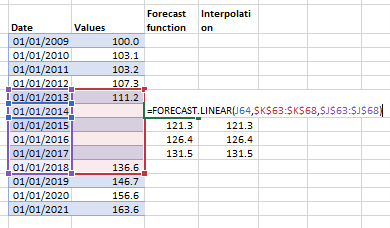

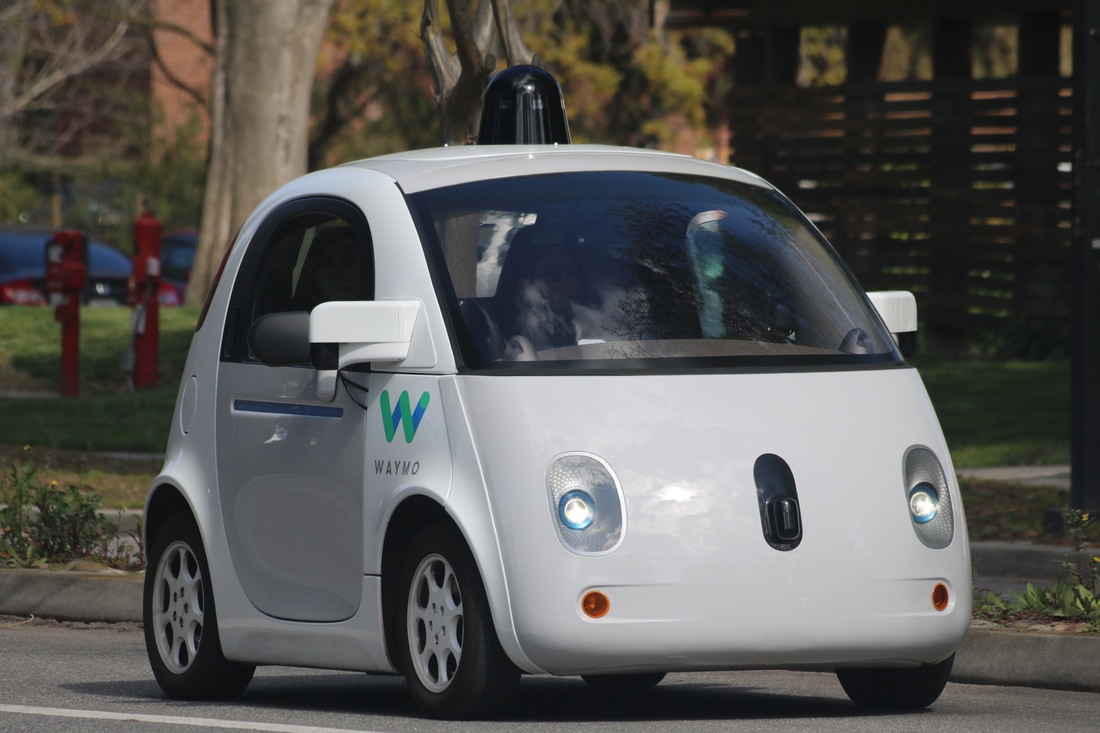
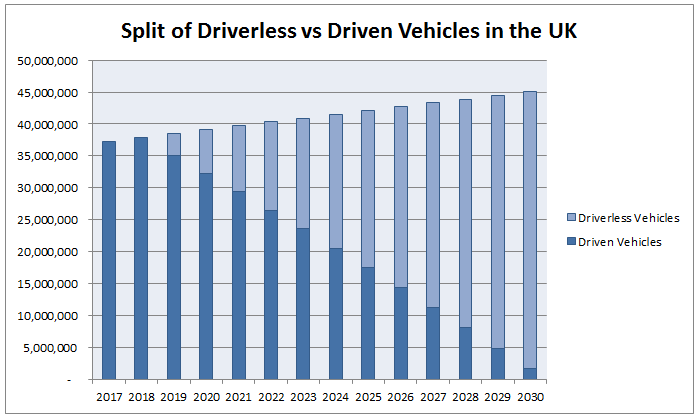
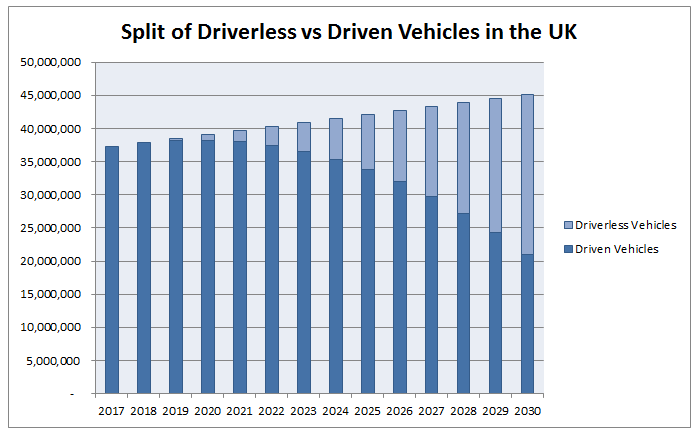
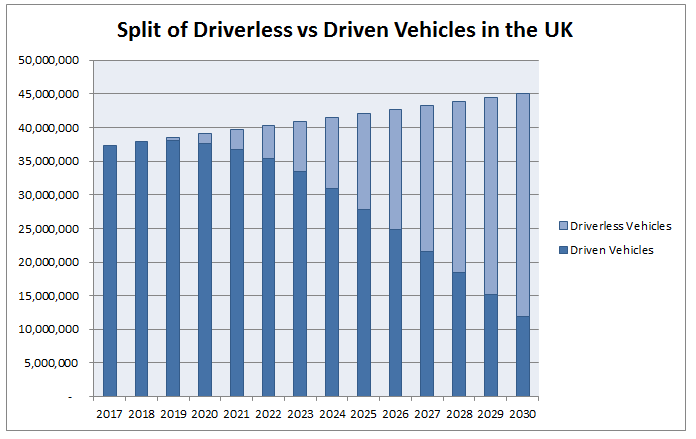
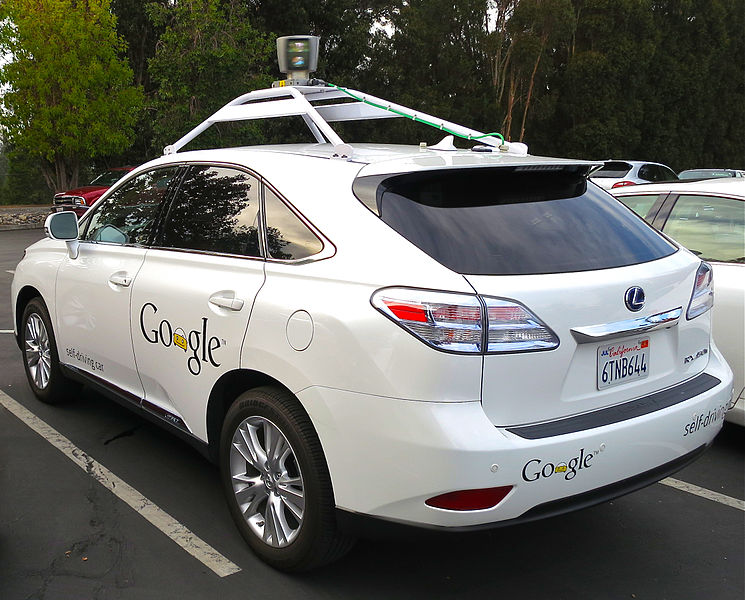
 RSS Feed
RSS Feed